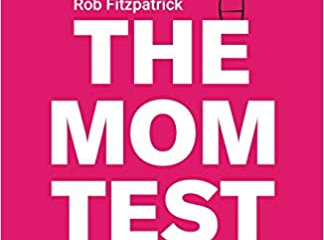As a product manager, it’s essential to communicate effectively with stakeholders, team members, and customers. While data and numbers are crucial, storytelling can be a powerful tool in conveying the value of a product and its features. In this article, we’ll explore the importance of storytelling in product management and how it can help you succeed.
1. Connect with Customers
One of the primary benefits of storytelling in product management is that it helps you connect with your customers on a deeper level. Stories evoke emotions, and when you can convey the benefits of your product through a story, you’re more likely to win over your customers. For example, if you’re trying to sell a fitness product, you could tell the story of a customer who struggled to lose weight until they started using it. This personal story will resonate with other customers who may be facing the same struggle.
2. Make Data Meaningful
As a product manager, you likely work with a lot of data. While data is important, making it meaningful to others can be challenging. This is where storytelling comes in. Using data to support your story can make it more impactful and memorable. For example, if you’re presenting a new feature to your team, you could tell the story of a customer who requested the feature and how it would improve their experience. Then, you could show the data supporting this feature’s importance.
3. Build a Stronger Team
Storytelling can also be an effective tool for building a stronger team. When you share stories about your product and its features, you’re helping your team understand the vision and goals behind the product. This can help them feel more invested in the product and its success. Additionally, when you use storytelling to illustrate the impact of a feature or change, you’re making it easier for your team to see the big picture and understand why their work is essential.
4. Differentiate Your Product
It can be hard to differentiate your product from the competition in a crowded market. Storytelling can be a powerful way to do this. By sharing stories that illustrate the unique value of your product, you can set it apart from others on the market. For example, if you’re selling a productivity app, you could tell the story of a customer who used your app to accomplish a task that they had been struggling with for months. This story shows your app’s unique value and can help it stand out from competitors.
5. Engage Your Stakeholders
Finally, storytelling can be an effective way to engage your stakeholders, whether they’re investors, executives, or other key decision-makers. By using storytelling to explain the value of your product and its features, and you can make it easier for them to understand and get behind your vision. Additionally, storytelling can help you build trust with your stakeholders by showing them the impact of your product on real people.
In conclusion, storytelling is an essential tool in product management and be a superpower if used effectively. It can help you connect with your customers, make data meaningful, build a stronger team, differentiate your product, and engage your stakeholders. In addition, by using stories to illustrate the value of your product and its features, you can set yourself and your product up for success.


